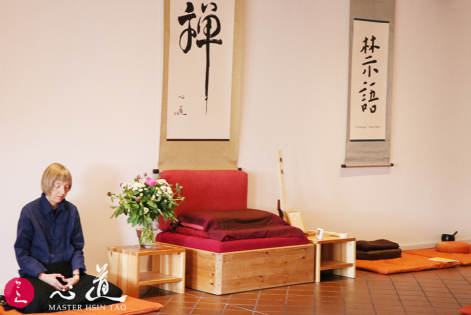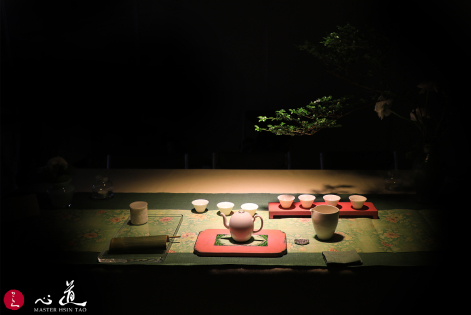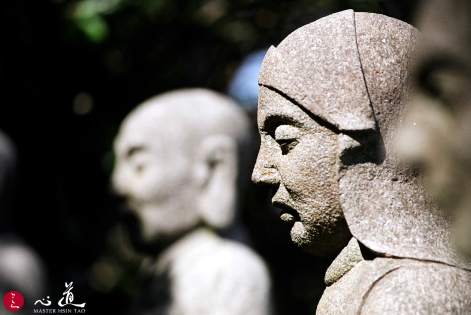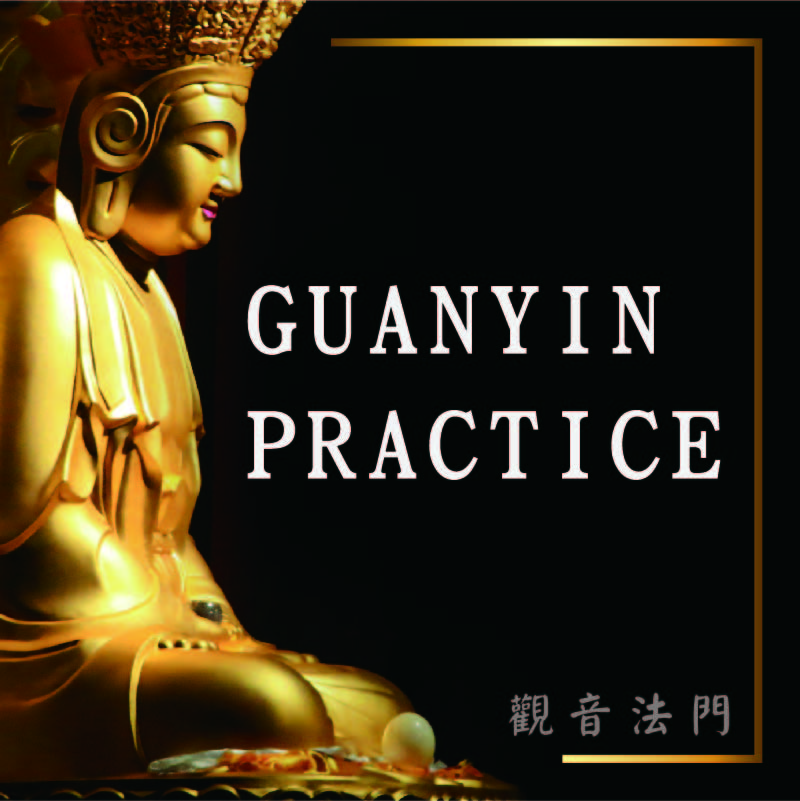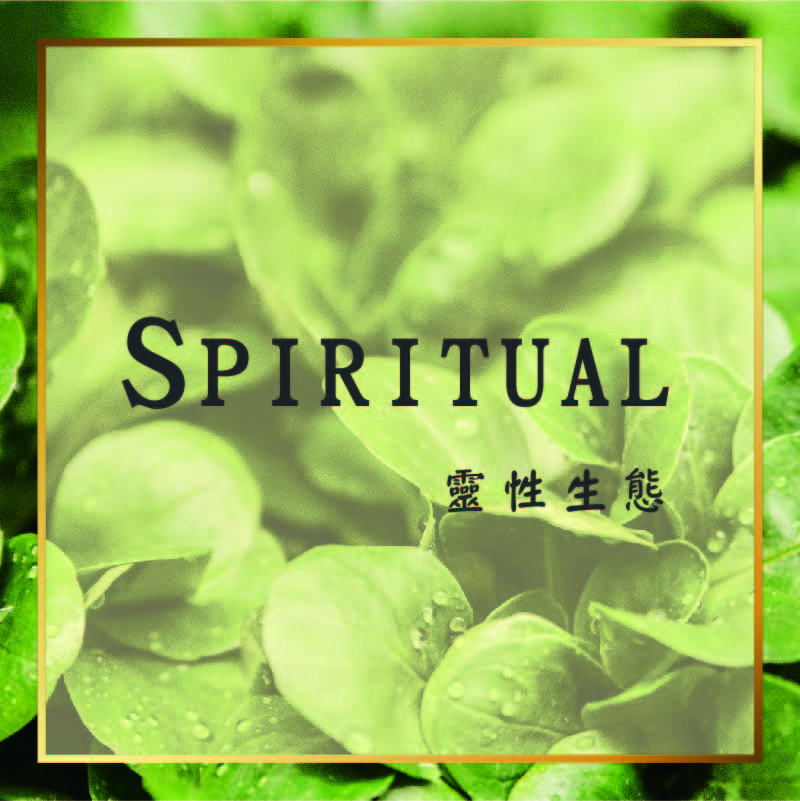
European Chan Program – Q&A Part 1
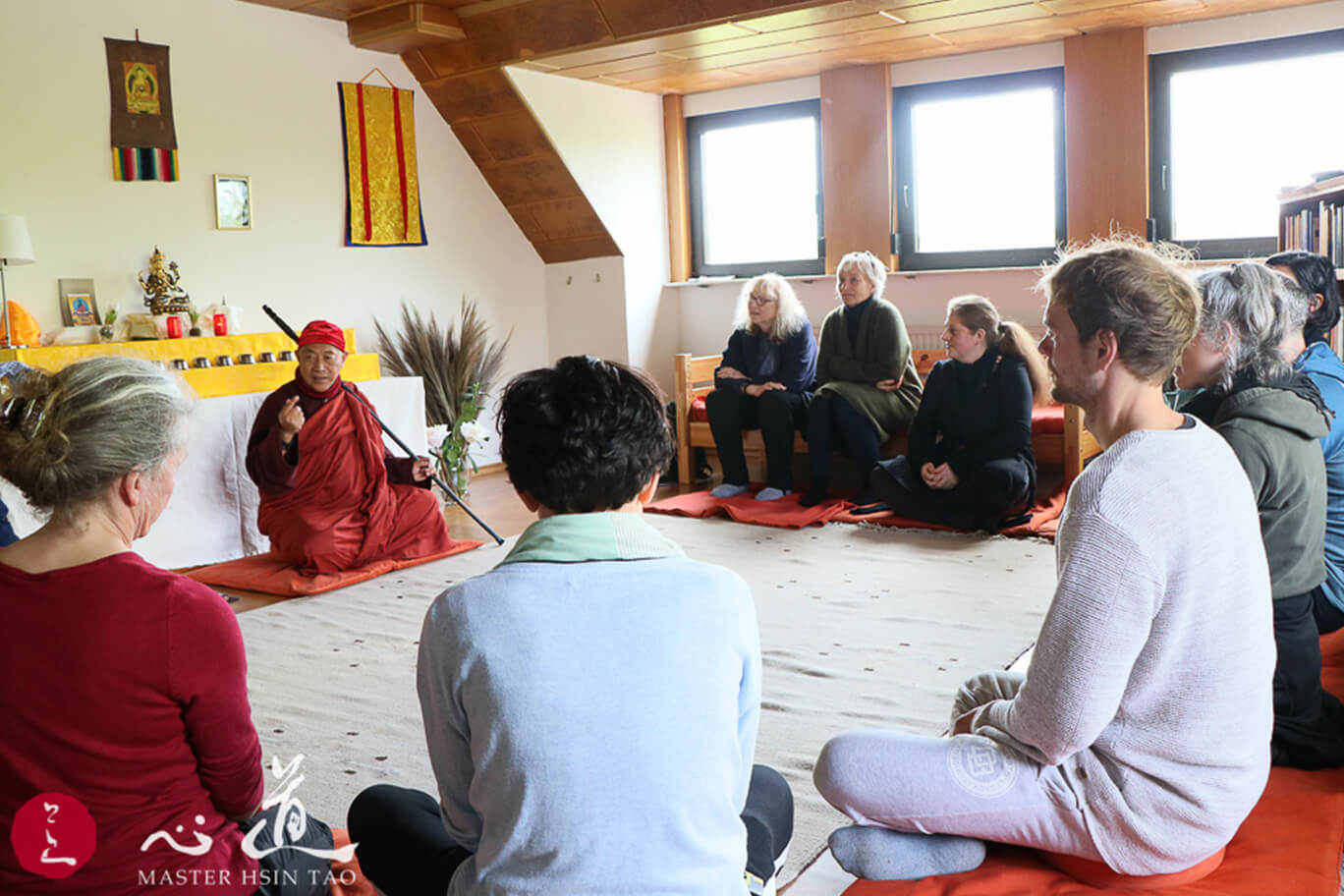 On May 5th, 2019, we completed the 3-day Chan program at Berghof, our first stop of the European Chan Program. Participants had a keen interest in Chan practice along with many questions. On this concluding day, we took some time for Q&As.
On May 5th, 2019, we completed the 3-day Chan program at Berghof, our first stop of the European Chan Program. Participants had a keen interest in Chan practice along with many questions. On this concluding day, we took some time for Q&As.
Q1: What’s the effect of stillness?
Master Hsin Tao: When the mind is in stillness, afflictive thoughts are lessened. Our mind would stop gravitating towards the surrounding, instead, it begins to look inside. Start from feeling inside. It is also the reason that our Chan practice is named “Peace Meditation”. With the practice of stillness, we can acquire the inner stability and harmony. As we do, our awareness becomes clearer.
Q2: Speaking of “mouth to the heart”, where should we put our attention to?
Master Hsin Tao: “Mouth to heart” is about our attentiveness and observation. How do we observe? Look at this very mind. We can’t take it out from anywhere. We only know that mind isn’t physical nor does it have a form. As well, it isn’t the physical heart. It is a mind without forms or notion.
We need to become familiarized with this notionless mind. If not, our mind would keep roaming around, clinging to all kinds of conditions. In the end, it becomes very unsteady.
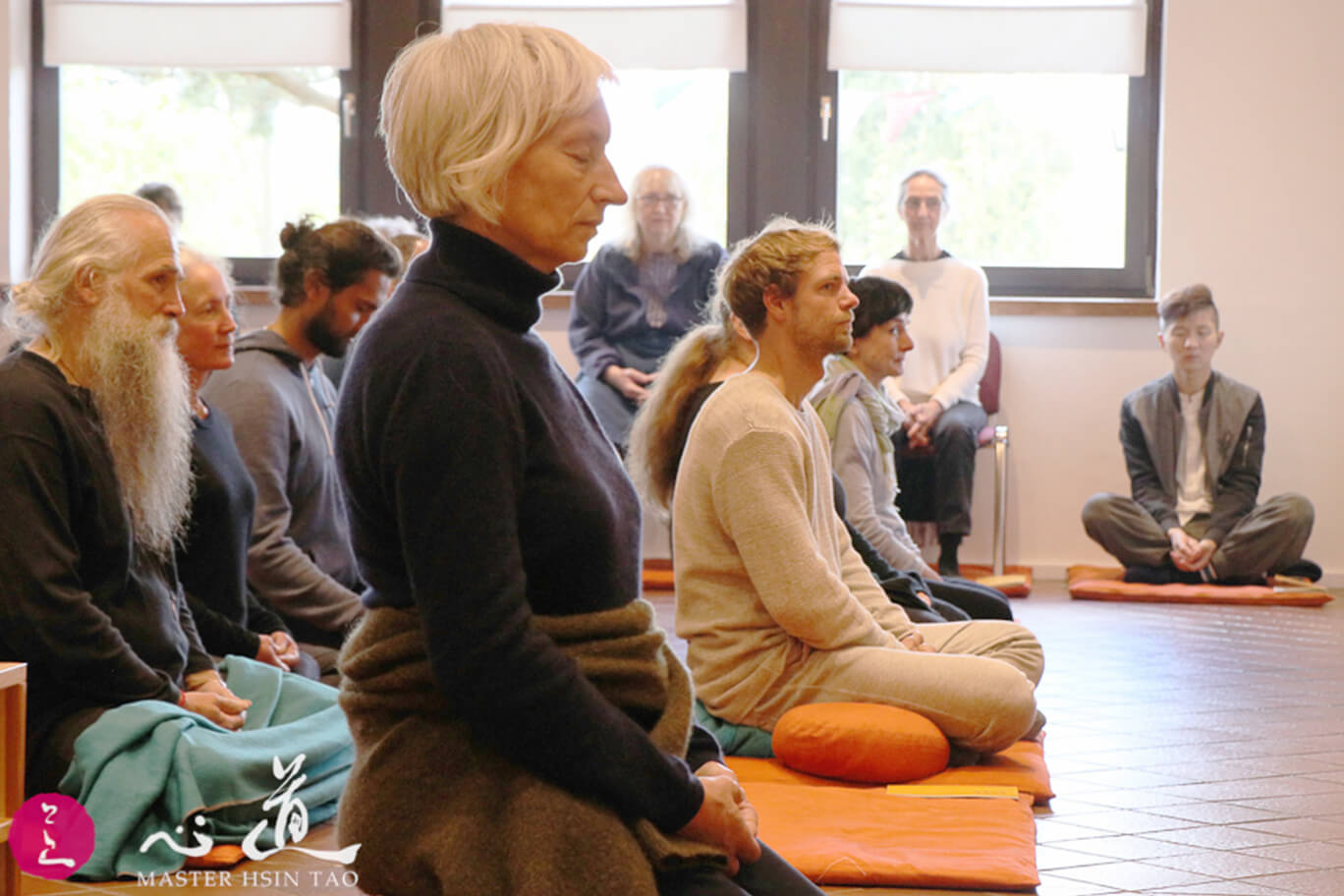 The purpose of Chan practice is to see the true nature of mind. It is such an amazing thing. As long as we haven’t recognized its nature, the mind is in discomfort and unease. When we’re contemplating on our original face, inquisitiveness arises. There’s nothing else left. Having nothing else, we would stop thinking. When nothing left, there are no notions, no conceptualization, no thoughts. Then, we can return to this notionless mind.
The purpose of Chan practice is to see the true nature of mind. It is such an amazing thing. As long as we haven’t recognized its nature, the mind is in discomfort and unease. When we’re contemplating on our original face, inquisitiveness arises. There’s nothing else left. Having nothing else, we would stop thinking. When nothing left, there are no notions, no conceptualization, no thoughts. Then, we can return to this notionless mind.
When we contemplate on and analyze this mind, we are perceiving the face of this mind. Once we realize that it has no form, we can abide in this formless mind.
Q3: What’s the connection between daily life and Chan?
Master Hsin Tao: “Living is Chan; Chan is living life". Why do we practice Chan? It's for enlightenment. In order to attain enlightenment, we must train our concentration and clarity. This is so our mind can slowly be part of the working of notions. When the mind stops conceptualizing, we’d become notionless. When we do, we’d know the nature of mind. At that time, we’d “get a glimpse of Buddha nature (Chinese transliteration: 破pò 本běn 參cān)”. Then what? We must carry out a living of non-abidance.
Making Chan practice a habit in your living. Learn to pay attention to mind at all times in daily life. “Chan has never been part from its nature”.
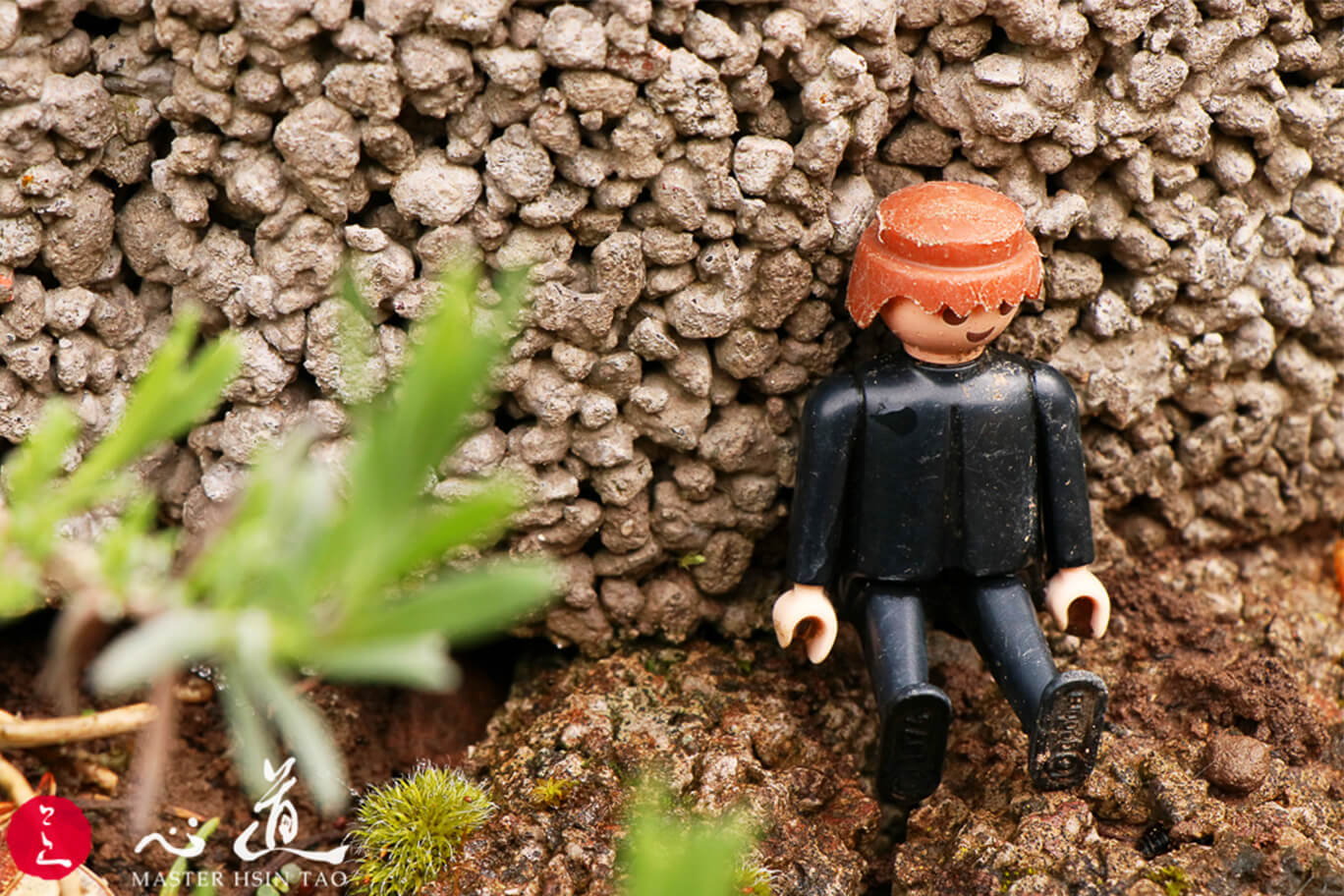 Q4: Master, why did you practice in the cemeteries for years?
Q4: Master, why did you practice in the cemeteries for years?
Master Hsin Tao: I wasn’t familiar with my mind back then. Therefore I was learning to keep my mind undisturbed.
Ordinary people like us have lots of covetousness and knowledge. That’s why I chose to practice in the cemeteries. Covetousness is lessened in places like these. As our application of worldly knowledge is reduced, our mind can eventually return to no-thoughts and notionlessness. Abide in non-abidance. The purpose to practice Chan in cemeteries was to lessen the burden of secular knowledge and covetousness. Allow our mind to return home.
Q5: Master, how can we rediscover that infinite light of primordial state? Whenever I sit to meditate, I feel like going crazy as if I’m dying…
Master Hsin Tao: This is because you’ve found the fabricated mind. If you’ve discovered the true mind, there’s nothing. It wouldn’t die nor would it cease. There wouldn’t be any horrifying things because it isn’t bounded by the body. Our awareness and mind are boundless. Space is infinite. If we don't recognize the mind, it isn't infinite anymore. It would be restricted instead.
In general, our thinking process is framed. It’s not notionless in most times. The space of notionlessness is no longer confined by space. By recognizing the mind, we learn about the universe. If not, we are simply limited in this body. No matter how smart we are, our thinking process is still narrow instead of opening to infinity.
Knowing this mind is the pursuit of wisdom. To acquire the boundless wisdom is to contemplate. By contemplating on Chan, one can understand this very mind. As we learn about our mind, we can explore this infinite universe. “Universe of infinity is the universe of mind.”


